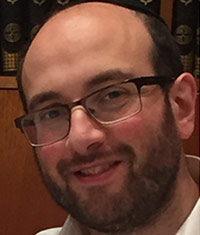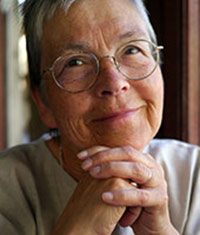Doctors are much more likely to cause problems by underdiagnosing end of life than by overdiagnosing it
Apparently, “tens of thousands of patients are being prematurely warned they could be about to die because of a defective diagnostic method used across the NHS” (The Telegraph). This “stone age” (MailOnline) diagnostic method is the well known “surprise question,” which asks doctors, “Would you be surprised if this patient died within the next × months?” And the “alarming new study” these newspaper articles refer to is a paper that looked at the accuracy and utility of doctors asking themselves the question.
“Disturbing” findings about the use of this question showed that “more than half of patients whom doctors believe will die within a year, are living longer.” The Telegraph goes on to say that it means “care for those patients is being moved onto an end of life footing earlier than necessary.” What is the justification for the implied criticism and condemnatory tone in these articles? It is hardly news that predicting death is very difficult and that doctors can’t accurately foretell the future.
Of course, what appears in the media is not at all what the authors wrote. The paper in question is actually a fairly straightforward literature review, examining whether the “surprise question” is useful in practice. It turns out that it could be, given the results that “the overall accuracy of the [surprise question] was approximately 75%,” which is rather better odds than many of the things we do in medicine.
Furthermore, the authors note that “in most circumstances, the consequences of misclassification by the surprise question are rarely likely to be clinically important. For instance, erroneously including patients on a palliative care register who are not actually in the last year of life is unlikely to adversely affect their care” and, indeed, may result in better provision of shared decision making and person centred care.
Timely provision of palliative care is known to confer survival benefits (see Katherine Sleeman’s BMJ Opinion piece for more discussion of this). Yet end of life discussions are difficult, so we often start them far too late, at a point of crisis when someone is ill and stressed in hospital.
Consequently, if a clinician does think that someone might die in the next few months or year then it is absolutely appropriate to give each patient an opportunity to discuss their hopes for the coming few months, to discuss stopping preventative medications that are unlikely to be of benefit and may cause harm, and to reconsider what they need for symptoms. This, of course, is palliation. In fact, the sooner we do this, the better to prevent the harms of polypharmacy. By doing our job well—reducing the burden of medication and unwanted effects—we would hope to increase our patients’ quality and also quantity of life.
Of course, not being surprised that someone might die is not the same as predicting that they will die. Even if the prediction is wrong, we are much more likely to cause problems by underdiagnosing end of life than by overdiagnosing it. Or, perhaps our predictions are accurate: patients are living longer than expected because we are doing our job well—by talking to people and by stopping harmful medication and interventions that were not likely to help them. Surely this is a cause for celebration?
Patients and their families need to be given the time to think about death and dying, and to plan all the other things that one must face up to as death approaches: spending precious time with family and friends, for example; prioritising small pleasures; making a will; preparing power of attorney; planning an advance decision; thinking about wishes for resuscitation. This doesn’t have to be an onerous task either; for planning an advance decision there are websites—such as ADAssistance.org.uk, mylivingwill.org.uk, or mydecisions.org.uk—that will help people through the process. The more people who do this, the more people who will be cared for in a way that they would choose at the end of their lives. By patients making their wishes clear, it eases the burden of decision making on their families.
Taking the time to make plans now for future possibilities and the certainty of death allows people to be less worried when further deterioration occurs, as of course it must. Not having these discussions is known to expose people to treatments that they may not have chosen for themselves. There is no time too soon to think about it and, sadly, nothing “needless” about it.
It is difficult to avoid the conclusion that a calculated misreading of an interesting research report has been used to deliberately undermine NHS doctors yet again. Media articles like this distort public understanding, add to the demonising of doctors, and may well prevent health professionals from addressing this most challenging issue when, in fact, talking about and accepting the inevitability of death and dying are so important for improving end of life experiences. This all appears profoundly irresponsible of the media at a time when there are rota vacancies throughout the NHS, many clinicians are demoralised, and rates of burnout and suicide are causing concern.
Yet irresponsible journalism is nothing new. What is perhaps more distressing is the complete failure of any senior figure in the Department of Health or NHS England to make a public defence of those clinicians who take on the difficult challenges involved in the care of those towards the end of life. Such senior figures undoubtedly understand the issues yet continue to stand by while doctors are vilified and undermined.
Acknowledgement: With thanks to members of the RCGP Standing Group on Overdiagnosis, who contributed greatly to this piece.
Alice Hodkinson is a portfolio GP working in and around Cambridge.
Competing interests: None declared.
David Spitzer is a GP in North London.
Competing interests: None declared.
Iona Heath is a former GP, London.
Competing interests: None declared.



